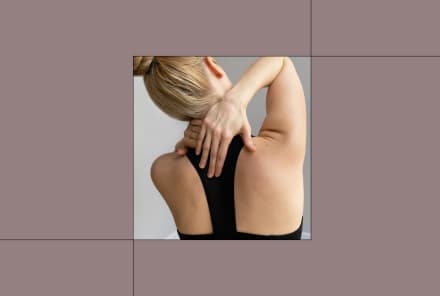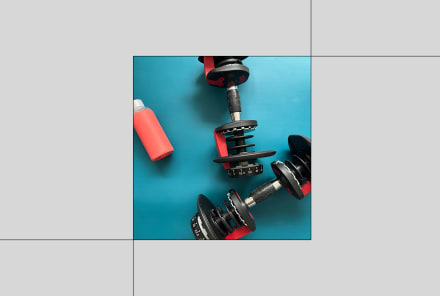Advertisement

What is aging anyway? Think you know? Think again. Aging is one of the most complex biological processes in existence, and defining it is not easy—even for the experts. I've heard scientists call aging "the time-based breakdown of the physiological functions needed to survive and reproduce." I've heard other experts refer to it as "the accumulation of changes in a human being over time encompassing physical, psychological, and social changes." But in the most general terms, aging is just the process of growing older—period.
It's a process that affects almost all of the body's systems and the cells of every major organ at rates that can vary greatly from person to person. How well we age is typically defined by changes in our appearance, reaction times, metabolism, memory functions, fitness levels, sex drive, and the ability to see, hear, and even smell. Other signs of aging are a decrease in organ function, a weaker immune system, and various hormonal changes, just to name a few.
But a better way to look at it may be to understand what aging is not.
Aging is not the enemy.
Aging is a natural and normal process. It can make us wiser, smarter, and stronger—both physically and emotionally. I'm proud of my age. Literally. Proud of it. Because it is an accomplishment. Life is not about perfection. It's about progress. And progress only comes with age. I have survived 44 years on this planet. In that time, I have done some great things and some stupid things—but each of them has helped me grow and made me who I am today. I truly believe that ubiquitous quotation: "The only person you should try to be better than is the person you were yesterday." And I am, with every passing day.
I once trained a 65-year-old woman and her 30-year-old daughter. The 65-year-old was stronger—by far. She could do 80-pound lat pull-downs—the daughter could only handle 65 pounds. She could leg-press 200 pounds! Her daughter could only do 140. And the list goes on.
It was fascinating. I figured the disparity couldn't be caused by genes because the daughter had her mom's genes. It wasn't that the mom was a lifelong athlete—she wasn't. That said, she had survived a hell of a lot in her life, and I came to the conclusion that her mental resilience and psychological fortitude had transformed into a manifestation of physical strength. This woman had walked through fire, survived it, and felt anything else was child's play. So a 200-pound leg press? Please—easy!
Aging is not "time."
The passing of time is not the primary cause of decrepitude! The choices we make regarding the way we live are what cause our bodies to decay quickly or maintain and thrive. Ultimately, we are not immortal, and eventually, we will die. But if you make the right choices, you will get many more years and extremely vigorous ones at that.
Aging isn't what kills you.
That's right! Aging isn't the reason we actually die. Research has shown that the very notion that people die of "old age" is a complete fallacy. It is true that as we get older, some age-related changes have a greater impact than others. But while these changes may make us more susceptible to disease, they don't inevitably lead to age-related pathologies such as type 2 diabetes, hypertension, heart disease, or dementia.
Why do we age?
Much like the science of nutrition and metabolism, the science of aging has been convoluted. There have been many theories and very little science up until relatively recently.
For centuries, philosophers and researchers have debated the true causes of aging. In fact, in 1990, Russian biologist and aging expert Zhores Medvedev categorized more than 300 different theories of aging. That's not a typo—I said 300 different theories! (Side note: As I write this, Medvedev is 92 years old and still kicking, so maybe the secret to defying aging is simply researching it—why do you think I wrote this book? Just sayin'. But I digress.) Now, while there have been many theories over the years on this topic, there are only a couple that have truly endured.
Some say it's damage.
Some theories propose that aging is the result of a constant assault on various molecules and cells in our bodies, ranging from proteins to DNA. Everything from exposure to the environment and toxic by-products (such as unstable atoms, ions, or molecules known as free radicals) to inefficiencies in our body's natural repair systems causes this damage, according to the theories. The damage accumulates like junk inside us throughout our entire lifespan, prompting some biological systems to fail, which in turn causes and accelerates the aging process. In fact, almost all research and observation points to this being true. And while it isn't quite that simple—our bodies react to these stressors differently based on our genetics—it's without a doubt a major component.
However, aging isn't all about wear and tear. Your body isn't like some old jalopy that's broken down and busted. Or is it? Let's think about this for a second. If we did use this analogy, what if that car had been cared for and maintained with routine service? What if it were kept garaged, given high-quality fuel, the spark plugs and oil changed regularly, and so on? That car would do a hell of a lot better and be around a hell of a lot longer than if it hadn't been well-maintained.
Sure, our bodies take a beating as we speed through life, but in many cases, that damage can be managed, prevented, and in some cases even reversed with the proper nutrition, stress management, lifestyle, and so on. Our bodies have the ability to repair, regenerate, or replace most of our cells and molecules. So, aging may be in small part due to wear and tear, but it's in large part due to neglect.
Phew. That was a long walk to get a sandwich, but you get it now, right? The good news is that much of the damage can be fixed or, better yet, prevented from happening in the first place.
Watch Next
Enjoy some of our favorite clips from classes
Enjoy some of our favorite clips from classes
What Is Meditation?
Mindfulness/Spirituality | Light Watkins
Box Breathing
Mindfulness/Spirituality | Gwen Dittmar
What Breathwork Can Address
Mindfulness/Spirituality | Gwen Dittmar
The 8 Limbs of Yoga - What is Asana?
Yoga | Caley Alyssa
Two Standing Postures to Open Up Tight Hips
Yoga | Caley Alyssa
How Plants Can Optimize Athletic Performance
Nutrition | Rich Roll
What to Eat Before a Workout
Nutrition | Rich Roll
How Ayurveda Helps Us Navigate Modern Life
Nutrition | Sahara Rose
Messages About Love & Relationships
Love & Relationships | Esther Perel
Love Languages
Love & Relationships | Esther Perel












